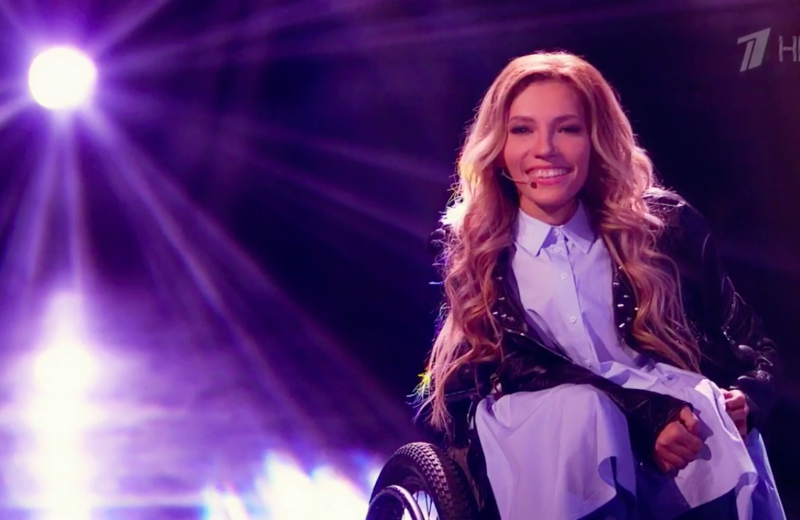Russia’s pick as its entry to the Eurovision Song Contest, to be held in Kyiv this May, could cause the international festival of pop to start on a sour note.
Russia’s First channel on March 12 announced that singer Yulia Samoylova, who suffers from spinal muscular atrophy and who uses a wheelchair to get around, would represent Russia at Eurovision 2017.
Her disability isn’t the problem, of course – she’s a controversial pick because she supports Russia’s invasion and annexation of the Ukrainian territory of Crimea in 2014, and she performed in Russian-occupied Crimea in June 2015.
Under Ukrainian law, she entered the territory illegally, as she didn’t pass through Ukrainian territory to get there.
Andrii Klymenko, the chairman of the Supervisory Board of the Maidan of Foreign Affairs NGO said in a Facebook post on March 13 that the Russians had picked Samoylova in order to cause a scandal.
“It’s a provocation with long-term consequences. …In reality the SBU (Security Service of Ukraine) cannot let such artists into Ukraine,” Klymenko wrote.
“On June 27, 2015, Samoylova performed in the occupied city of Kerch together with (singers) Gazmanov and Lolita,” he added.
Samoylova was born on April 7 1989 in the Russian city of Ukhta in the Komi Republic. She has been disabled since childhood and was diagnosed with type-one spinal muscular atrophy at the age of 13. In 2014, Samoylova took part in the opening ceremony of the winter Paralympics in Sochi.
The song “The Flame is Burning,” which Samoylova is to sing in Kyiv, is about the singer herself.
“In some ways this song is about me,” Samoylova said to Russian news website Moskovsky Komsomolets, “Actually not just in some ways – it is about me.”
The song “The Flame is Burning,” which Yulia Samoylova is to sing in Kyiv, is about the singer herself. (Youtube / Muzyka)
The song has lyrics “I wish I knew where the light is, I wish I had the courage to go. If there’s a light, then we have to keep dreaming.”
SBU spokesperson Olena Hitlianska, responding to the announcement of Russia’s Eurovision entry, said the service was planning to “examine” the case.
“Our final stance will be based solely on the stipulations of Ukrainian law and the interests of national security,” Hitlianska said.
Ukraine has already refused entry to a number of artists due to their having performed in Russian-occupied Crimea and the parts of the Donbas where Russian-backed forces have seized control.
In March 2016 the SBU refused to let the Russian rapper Guf perform in Odesa because he had performed in Crimea the day before. In February 2016, Belarusian singer Maks Korzh was also refused entry, also for having performed in Crimea.
However, Ukraine also has a history of making exclusions and exempting people from the ban.
Russian singer Natalia Koroleva was allowed to visit Ukraine in January to attend her grandmother’s funeral. Koroleva, who is of Ukrainian origin but has long been living in Russia, had previously said she supported Russian’s invasion and annexation of Crimea, and had visited the Russia-occupied peninsula.



